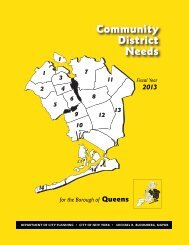Palm Oil Buyers Scorecard
WWF_Palm_Oil_Scorecard_2016
WWF_Palm_Oil_Scorecard_2016
You also want an ePaper? Increase the reach of your titles
YUMPU automatically turns print PDFs into web optimized ePapers that Google loves.
WHAT SUPPLY CHAIN<br />
CHOICES ARE THE<br />
BRANDS MAKING?<br />
WWF is asking brands to move away<br />
from relying on book and claim and<br />
toward mass balance, and eventually<br />
segregated and identity preserved<br />
CSPO.<br />
Each of the RSPO-approved supply chain options to source CSPO has a role to play in<br />
transforming the industry (see appendix 1).<br />
The book and claim system is valuable to kickstart transformation by making it easy<br />
and cheap for brands to support growers that are RSPO-certified. And it’s currently<br />
difficult or even impossible to source physical supplies of some types of palm oil, such as<br />
complex derivatives or palm oil from independent smallholders. However, shifting supply<br />
chains to physical supplies of CSPO is important because it brings greater transparency,<br />
and gives consumers the assurance that the oil in their products is indeed sustainable.<br />
THERE IS NO REASON<br />
WHY A RESPONSIBLE<br />
RETAILER, FOOD<br />
SERVICE COMPANY<br />
OR MANUFACTURER<br />
SHOULD NOT<br />
ALREADY BE 100<br />
PER CENT CERTIFIED<br />
WWF’s work on the ground, such as that in Tesso Nilo (see page 56), clearly illustrates<br />
the need for companies all along the palm oil supply chain to take control and<br />
responsibility for the palm oil they source. Other than investing huge resources<br />
themselves in tracing all of their palm oil right back to the plantations (something<br />
which no company has yet achieved), the only way for brands to be sure they are<br />
buying sustainable palm oil is to shift their sourcing to known and verified sustainable<br />
sources. That means buying CSPO that has been kept segregated from uncertified palm<br />
oil right from the plantation to the end user.<br />
The mass balance option is a stepping stone between book and claim and fully<br />
segregated CSPO. It gets companies along the supply chain asking questions about<br />
their suppliers and building relationships based on their ability to deliver sustainable<br />
palm oil.<br />
This is why WWF asks brands to move away from relying on book and<br />
claim and toward mass balance and eventually segregated and identity<br />
preserved CSPO.<br />
The low cost and ease of using the book and claim option and the global<br />
availability of CSPO means that today there is no reason why a responsible<br />
retailer, food service company or manufacturer should not already be 100<br />
per cent certified for the palm oil it uses.<br />
And in markets where mass balance, segregated and even identity<br />
preserved CSPO is increasingly available (like Europe and North America)<br />
brands must also increase their use of these options.<br />
37 WWF PALM OIL BUYERS SCORECARD 2016




